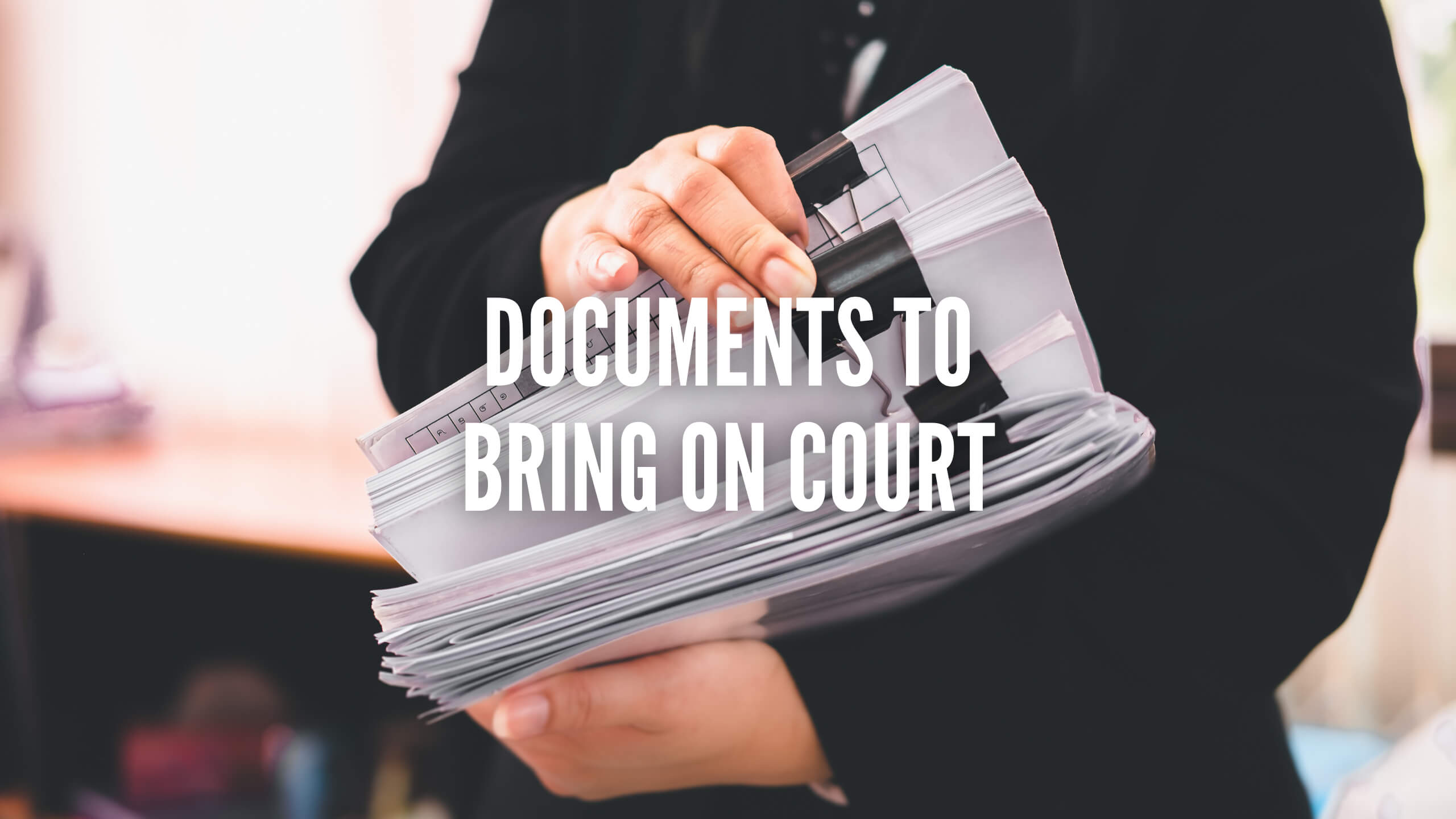What Documents Should I Bring To Court?

Your preparedness for your day in court is of the utmost importance in any legal case. Just as our team will be working to prepare a well-supported case on your behalf, it is essential to understand how to best prepare for your upcoming family court proceedings. Whatever your family law matter concerns may be, knowing what documents to bring to court can help you avoid any unwanted bumps during the process and ensure your attorney has the information they need to support your case.
If you have questions or concerns about how to prepare for your upcoming court dates, do not hesitate to reach out to a family attorney from O’Connor Family Law. With over 35 combined years of exclusive family law experience, we have extensive knowledge about what steps you should take before heading to the local courthouse.
THE TYPE OF HEARING WILL DETERMINE WHAT DOCUMENTS TO BRING
Working with an attorney who can help you to prepare and explain what type of hearing you are going to be attending will help you understand how documents may or may not be necessary. A motion for temporary orders will most definitely require you to bring an accurate and updated financial statement. You also may need some supporting documentation if you expect any of the issues in your case to be highly contested; however, a motion hearing is very different than an evidentiary hearing and, oftentimes, a judge will not look at any documents during these types of hearings. At a contempt hearing, you should bring whatever documentation is necessary to show that you are not violating a prior court order. A trial is the culmination of the entire litigation and requires substantial documentation that needs to be collected during the course of the case.
CHILD CUSTODY AND SUPPORT DOCUMENTS
When a divorce case involves matters of child custody or support, there is an added layer of documentation that you should give to your attorney and potentially bring as evidence for the court to review. If you are requesting child support, you may need to bring proof of current custody or visitation orders, records of any previous child support payments, financial statements, residency records, and the child’s birth records.
In matters of child custody, the type of documentation that you need to bring to court depends on whether you and your child’s other parent have been able to reach an agreement on your own. If you can come to a mutual arrangement about your parenting plan, you can present the agreement to the court for approval.
On the other hand, if you and your ex disagree about how to arrange custody, the ultimate decision will be left to the court. In this situation, both of you may need to supply evidence to show why being granted custody would be in your child’s best interests.
Documentation that could be used to bolster your case in a custody case includes witness statements corroborating the extent of a parent’s role in their child’s life, school records, medical records, and phone records. You must be able to show that you can provide a secure home environment and that you’re capable of supporting your child. Therefore, documents like financial and property records are also important to bring to court. As the type of hearing will dictate what type of documentation you may need, it’s important to work with your attorney to develop a plan and a strategy that best supports the outcome you desire.
VITAL RECORDS FOR THE DIVISION OF ASSETS AND ALIMONY
The division of assets remains one of the most contentious issues in local courts, and alimony matters are usually of equal concern to many divorcing couples. A Massachusetts court divides assets based on the doctrine of equitable distribution, which means that property may be divided fairly but not equally between you and your ex. All income, property, real estate, and other assets must be disclosed to the court.
The list of documents to bring to court for the division of assets portion of your case when it goes to trial is long, but it should include:
- Tax returns
- Bank statements
- Income statements
- Current mortgage documents
- Property deeds
- Retirement information
- Credit card statements
- Investment documents
- Insurance policies
- Forms from Social Security
- Valuation records
- Other records of debt and assets
Alimony in Massachusetts is based on both parties’ needs and financial circumstances, so a lot of these documents will also be essential in determining the amount of spousal maintenance to be paid.
ASK AN ATTORNEY ABOUT THE DOCUMENTS YOU SHOULD BRING TO COURT
The aforementioned documents are just a few examples of what you should bring to family court when you have a trial; however, a thorough financial statement and detailed pleadings can often do a lot of the work for you in hearings leading up to trials. An attorney from our firm could explain the precise records you may need for your case and work on submitting all requests for admission of evidence before your court date. To discuss your case, call O’Connor Family Law today.


